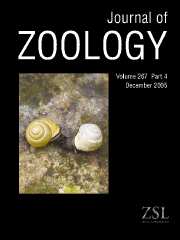Article contents
Mouse (Mus musculus) stocks derived from tropical islands: new models for genetic analysis of life-history traits
Published online by Cambridge University Press: 01 January 2000
Abstract
Founder effects, together with access to unoccupied ecological niches, may allow rodent populations on isolated islands to evolve constellations of life-history traits that distinguish them from their mainland relatives, for example in body size, litter size, and longevity. In particular, low intrinsic mortality risks on islands with reduced predator numbers and not subject to harsh winter climates may in principle support the development of stocks with extended longevity. Conversely, the conditions under which laboratory rodents are typically bred are thought to select for genotypes that produce large, rapidly maturing races with high early reproductive rates but diminished longevity. To test these ideas, and to generate new mouse stocks suitable for genetic and molecular analysis of the processes that time life-history events, we have developed specific pathogen-free stocks from mice trapped from three distinct populations: the U.S. mainland (Idaho) and the tropical Pacific islands Majuro and Pohnpei. Mice from all three locations were found to be shorter and lighter, to have smaller litters, and to have higher faecal corticosterone levels than mice of a genetically heterogeneous stock derived from four common laboratory inbred strains. Among the wild-derived stocks, mice from Pohnpei and Majuro were significantly lighter and shorter than Idaho-derived animals, even in populations kept from birth under identical housing conditions. Litter size and reproductive success rates did not differ significantly among the three wild-derived stocks. Although further work will be needed to see if, as predicted, the wild-derived stocks differ from one another and from laboratory mice in longevity, these stocks provide useful tools for genetic dissection of factors that regulate body size and reproductive success.
- Type
- Research Article
- Information
- Copyright
- 2000 The Zoological Society of London
- 43
- Cited by




